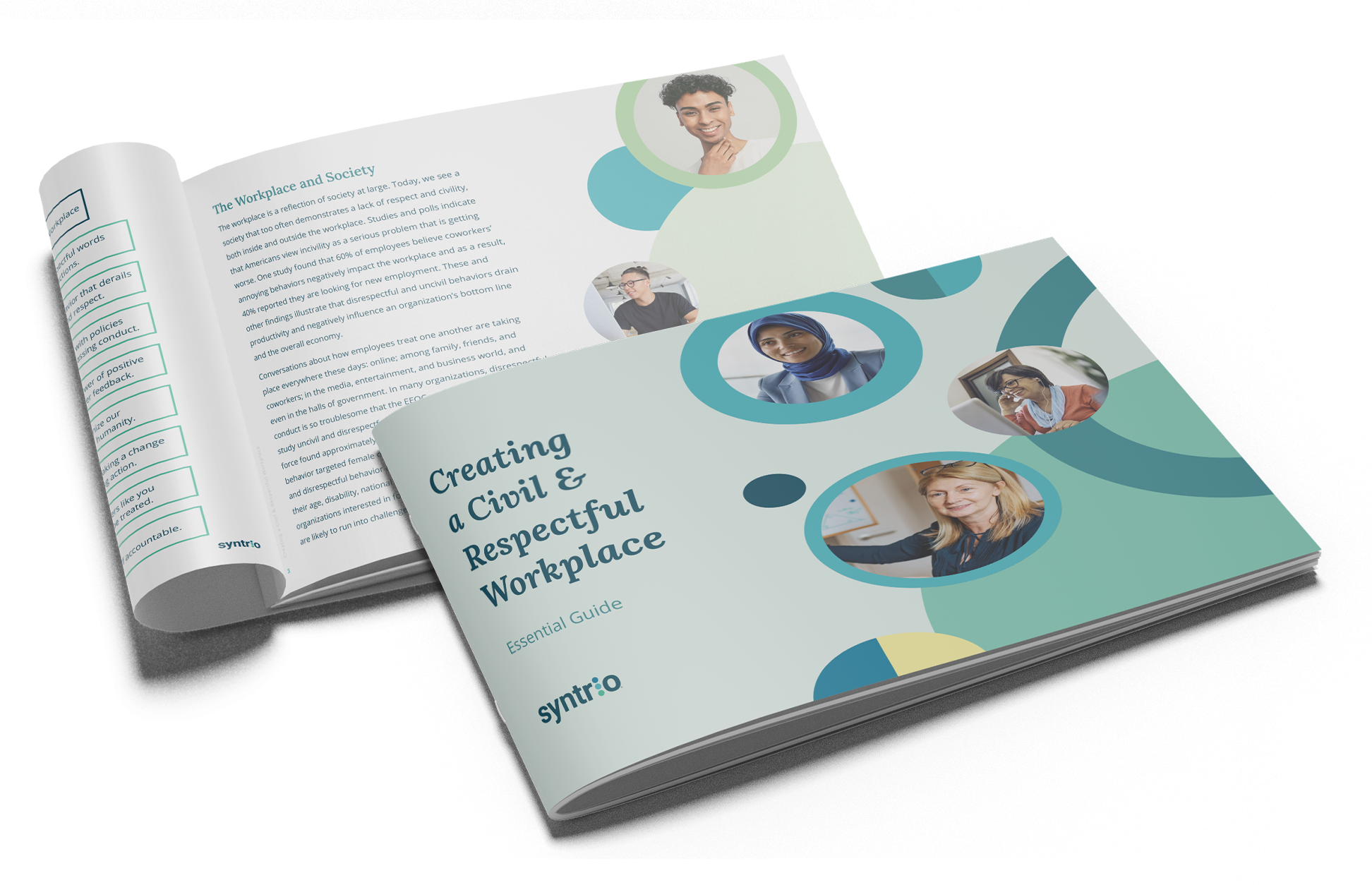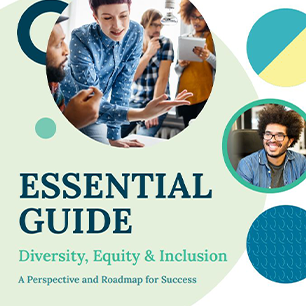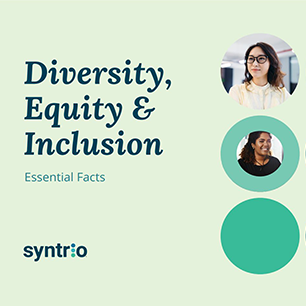POPULAR TOPICS – DIVERSITY, EQUITY, and INCLUSION
Creating a Civil and Respectful Workplace
Online training courses and tools to help you effectively address diversity, equity, inclusion, unconscious bias, and sensitivities in the workplace.

How to Create a Civil and Respectful Workplace
According to the Equal Employment Opportunity Commission (EEOC), rather than dwelling on legal standards and what not to do, organizations, managers, and employees should focus on what to do—the words and actions that promote respect and fairness and everyone’s responsibilities for contributing to care in the workplace. This subject area has been evolving for decades. It has grown with changing societal standards, legal and regulatory developments, and an increased understanding of the relationship between social issues in the workplace and the value of such initiatives to virtually everyone.
The workplace is a reflection of society at large. Today, we see a culture that too often demonstrates a lack of respect and civility, both inside and outside the workplace. Studies and polls indicate that Americans view incivility as a serious problem that is getting worse. One study found that 60% of employees believe coworkers’ annoying behaviors negatively impact the workplace, and as a result, 40% reported they are looking for new employment. These and other findings illustrate that disrespectful and uncivil behaviors drain productivity and negatively influence an organization’s bottom line and economy.
Get the Training!
According to the EEOC, there are profound costs associated with a disrespectful workplace:
Essential Training to Create a Civil and Respectful Workplace
Syntrio’s Diversity, Equity, and Inclusion (DEI) programs communicate organizational values and foster commitment to inclusive, ethical, and legal business practices. DEI represents a tremendous source of strength if we learn to use our differences to our advantage. By tying diversity to business strategy, we inevitably increase performance, innovation and customer satisfaction.
Diversity is more than recognizing differences between race and gender and there is a significant gap between “valuing diversity” and having the appropriate skills to collaborate effectively in a group of diverse people. We need to acknowledge coworkers’ differences and practice inclusion, drawing on different cultures, talents and ideas to create a fairer and more productive workplace for all.
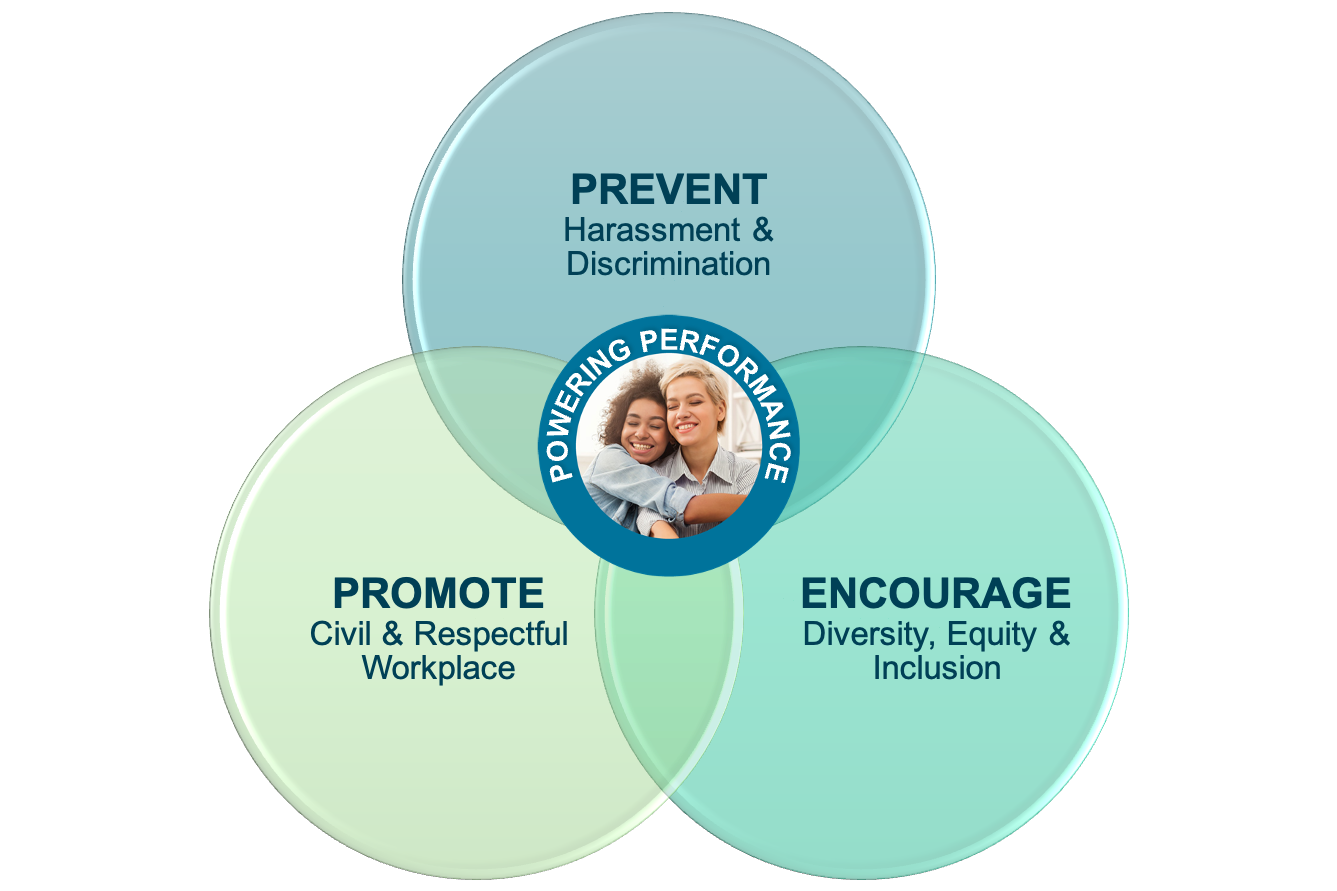
Your DEI vision, strategy, and goals can positively impact your culture when they are supported by leadership, and you are transparent with your workforce and marketplace. People will want to work with you, and studies show dramatically improved loyalty patterns associated with feeling understood, respected, and included. Team members will be increasingly engaged by positive changes while, at the same time, you’ll attract a more diverse employee and customer base.
Syntrio provides a comprehensive solution that promotes and strengthens a diverse and inclusive workplace. We can help you along your journey, whether the focus is first to enlist leadership in the launch, relaunch of a DEI initiative, or engage your workforce through a broad-based training and communications program.
- Valuing Diversity
- Diversity, Inclusion & You
- Unconscious Bias & You
- Success Through Inclusion
- Employee Essentials of DEI
- DEI Ethical Snapshots
- Sensitivity to Racial Identity
- Sensitivity to Social Identity
- DEI in Conversations
- Micro-Behaviors
- Empathy and Allyship
Complete DEI Program and Toolkit
In addition to our modern, interactive diversity and inclusion training courses, organizations also receive access to our toolkit of videos and resources to reinforce and build upon employees’ knowledge and skills about promoting a civil and respectful workplace.
- Daily multimedia video tips for appreciating a diverse workforce and practicing inclusive behavior.
- Monthly video highlights that promote the role and critical achievements in Black History, Women’s History, Asian-Pacific American Heritage, Hispanic Heritage, and more.
- Conversation starters that encourage open dialogue–showcasing real-life scenarios and answering “tough questions.”
Why Choose Syntrio for Your DEI Training Program
Syntrio has the most robust set of DEI offerings, from the largest online library of over 40 modern and interactive courses to 500+ supplemental training resources. This enables organizations to deliver the right message to the right person at the right time about the most impactful issues.
We serve 6,000 organizations and have trained over 15 million people worldwide.
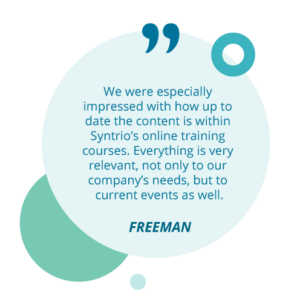
Modern Leaders Model Civil and Respectful Behavior
By swiftly responding to rudeness and harassment, leaders communicate that uncivil and disrespectful behavior will not be tolerated. Leaders can also measure and reward civility in performance reviews or through awards, public acknowledgment, and other forms of recognition.
Further, managers, human resources, and other support staff must take employees’ concerns seriously and act appropriately in resolving any issue. Employees play a role, too. Besides leadership setting the tone, all managers and non-managers have responsibilities to foster a civil and respectful workplace. Together, everyone in a workplace has a role that benefits all.
Featured Courses
Introduction to Workplace Diversity, Equity, and Inclusion
Diversity, equity, and inclusion in the workplace benefit organizations, the people in them, and those they serve. This course addresses how individuals, groups, and organizations can encourage greater diversity, equity, and inclusion.
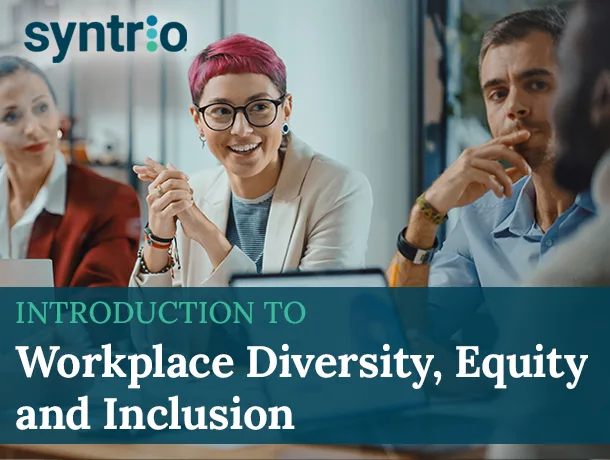
Diversity Essentials: Introduction
This introductory module to the Diversity Essentials series focuses on how diversity benefits our organization. It addresses bias associated with first impressions of others and how to mitigate those biases. It includes tips and techniques on being more inclusive to people from various backgrounds, which can impact collaboration, building teams, navigating change, motivating, managing, and maintaining and increasing productivity.
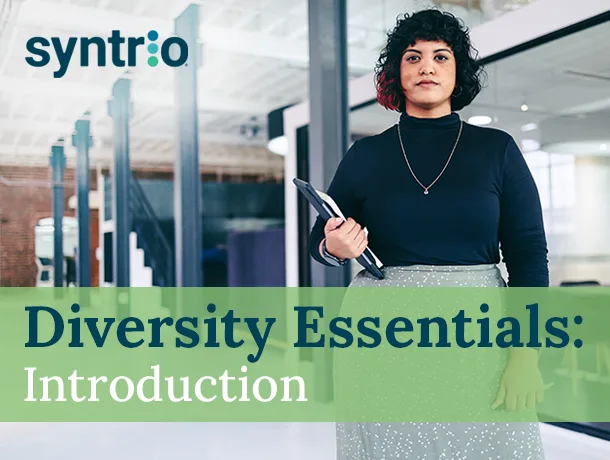
An Introduction to Unconscious Bias
Unconscious bias refers to the limited and unrecognized lens through which we see the world. This can sometimes impede how we view others, leading us to underestimate their abilities and contributions. When we recognize our unconscious bias, we can learn to manage it and enable a broader and richer perspective regarding others and the world.

Micro-behaviors and Other Messages
Everyone communicates in ways that are sometimes not intended. In addition to what we say, we may communicate with our eyes, gestures, bodies, and other methods. These “micro-behaviors” can convey both positive and negative messages. The more we understand them, the better we can manage what we communicate.
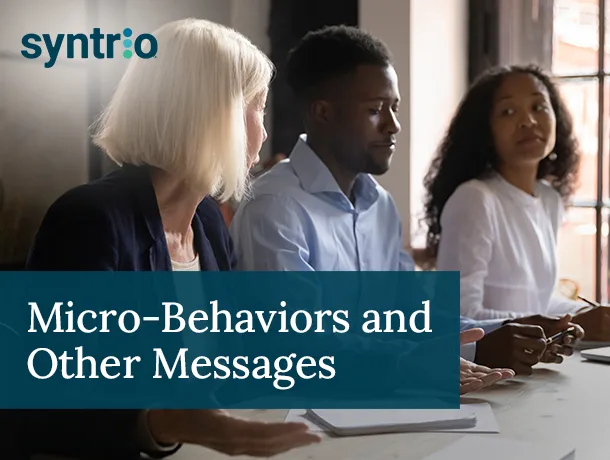
Diversity, Equity, and Inclusion in Conversation
Unconscious bias refers to the limited and unrecognized lens through which we see the world. This can sometimes impede how we view others, leading us to underestimate their abilities and contributions. When we recognize our unconscious bias, we can learn to manage it and enable a broader and richer perspective regarding others and the world.
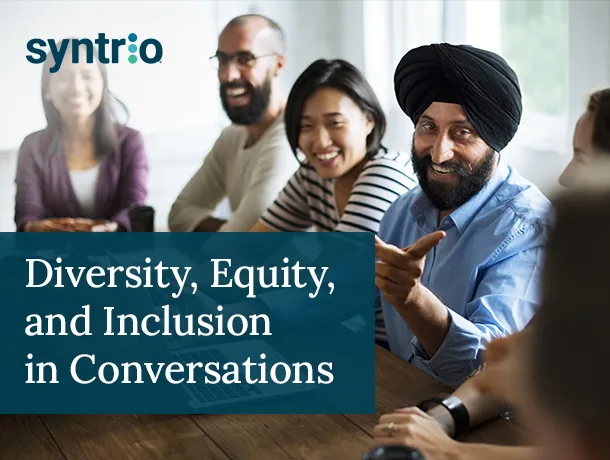
Get the Training!

RESOURCES

